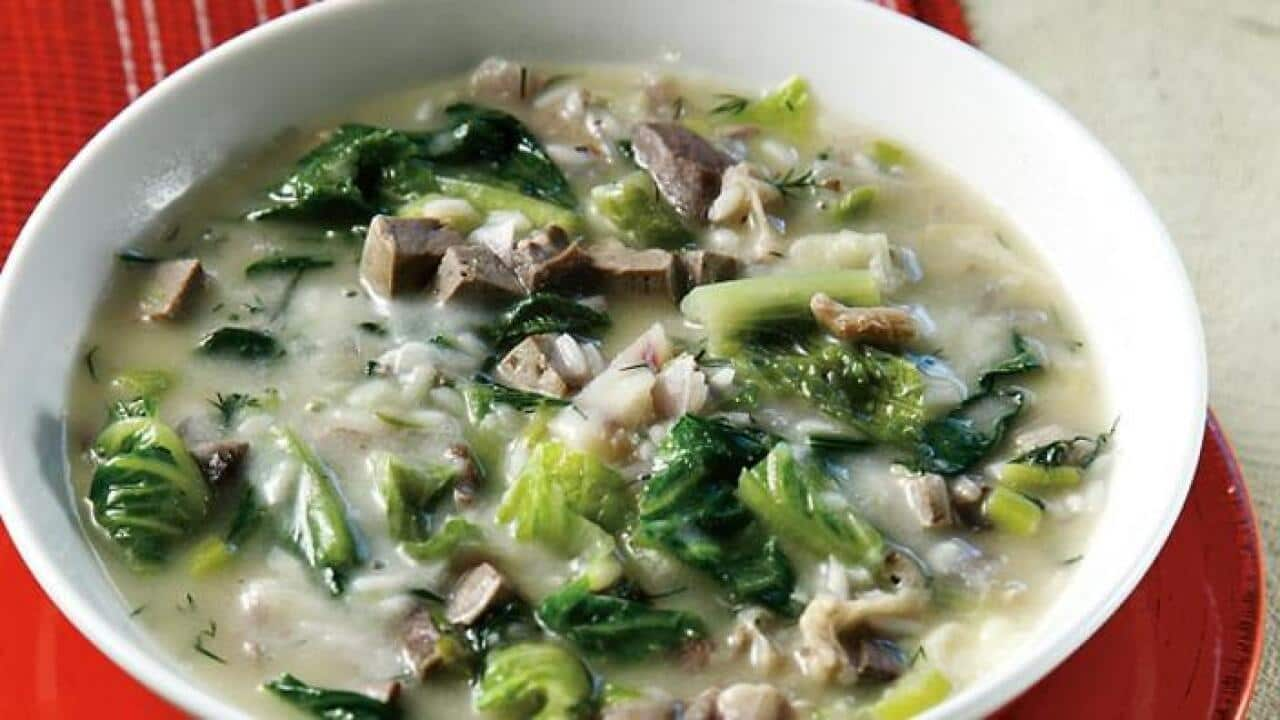Ms Pelkas’ tsoureki recipe is the culmination of a years-long hunt for the optimum version of the traditional Easter delicacy.
Her response to the news that it was the winning entry at SBS Greek’s competition, was nothing short of enthusiastic.
“I am utterly happy that at the age of 80 I have won this competition out of the blue”.
Ms Pelkas is the very definition of self-made chef.
Upon her arrival to Australia in 1965, coming from a village called Yermas in Kastoria, Greece, she landed her first job in Adelaide at a hospital’s kitchen, as a kitchenhand.
“And because I loved cooking […] guess what I did? I was following closely all the chefs!” she muses.
“I was keeping notes of whatever they cooked, and this is how I was learning, having a little notepad in my pocket and putting down on paper everything. Later on, I got a job at a restaurant where I was also documenting the recipes”.
“Within three to four years I had become a proper chef,” she says adding that she would end up down the track having more than 30 people under her supervision”.
Ms Pelkas created her signature tsoureki recipe from scratch, using knowledge and trialling different versions over the years.
“It doesn’t come from a recipe book or any other source.
“I made my very own [recipe] and it turned out to be the ‘best’!” she exclaims.
In an era when cooking can come in the form of marketable product, and traditional recipes are often kept secret, Ms Pelkas reminds us that one of the greatest joys experienced in the kitchen – and life really – comes from sharing!
The recipe she shared with us is that “best” one she has been using every Easter for the last four decades or so.
Granddaughter Cristina (pictured by her side in the main image) is to be thanked for documenting the recipe found below.

Ms Pelka's freshly baked tsoureki Source: Supplied
Konstantina’s tsoureki recipe
Ingredients
3/4 cup milk
1 tbs mahlepi
2 tbs yeast
5 eggs, with one yolk reserved
2 tbs orange zest
1 1/2 cups caster sugar
1 tsp vanilla sugar/essence
1/2 cup orange juice, with one tablespoon reserved
1/2 cup vegetable oil
4 1/2 cups plain flour
sesame seeds, for garnish
Method
(makes 3 or 4 small loaves)
1. Warm the milk until lukewarm and fill the sink with hot water.
2. Place the mixing bowl in the sink of hot water. Whisk together the warmed milk, mahlepi, yeast and 3 tbs of plain flour in the bowl. Cover and allow the yeast to activate.
3. Whisk together the eggs. Add the orange zest, orange juice, caster sugar, vanilla sugar and vegetable oil, then whisk to combine. Reserve 1 egg yolk and 1 tbs orange juice for brushing later.
4. Add the egg mixture to the milk and yeast in the bowl. Keep the bowl in the sink, to warm through the ingredients. Stir. Add the flour and knead mixture together, using a plastic scraper to clean the sides of the bowl. Mixture should come away from the hands once ready.
5. Wipe the base of the bowl, cover with cling film and place within a plastic bag. Wrap with several layers of blankets and put in a warm place to prove for about 2 to 3 hours, until over doubled in size.
6. Line the baking trays with baking paper. Shape the dough with oiled hands into braided shapes. Brush with reserved egg yolk and a tablespoon of orange juice. Sprinkle with sesame seeds. Cover with a tea towel, then the blankets and allow to rise until doubled, about 2 to 3 hours.
7. Preheat oven to 150 C.
8. Bake for about 30 minutes or until internal temperature reaches 90 C.
ALSO READ

Greek Easter soup
Check out the photos from other competition entries

Pictured on the bottom left corner one of the competition participants, Ms Christina Dellidis Source: Supplied

Source: Supplied


